OUR STORY
When founders Larry Jacobs and Mike Dobrovic started Mulderbosch in 1989, they weren’t afraid to aim high. They’d found a run-down old fruit farm with no history of viticulture. But fuelled by unstoppable optimism and good instincts, they figured there was good wine potential in the humble property that had lain fallow for close to a century. They got to work, cleared away the accumulation of years of neglect and uncovered what turned out to be one of the most exciting wine-growing corners of Stellenbosch.
It wasn’t long before their wines with uniquely vertical labels, were thrilling wine enthusiasts.
They knew how to make the most of Mulderbosch, its varied soils and diverse topography of sloping hills and valleys, plus its cooling closeness to the sea. And right from the maiden vintage of 1992, they began to earn many accolades and international acclaim. It’s been that way pretty much ever since.
Those of us to come after Larry and Mike have done our best to maintain their track record and build on the reputation they established. We owe it to them as much as to our many supporters all over the world.
We take our inspiration from their visionary optimism. As a team we’ll never forget what they managed to achieve with such foresight and confidence in the future. We still pursue the same dreams and work to the same principles of excellence, creativity, and innovation. We’re proud that the shout-outs and awards continue. It doesn’t stop there, though. Ours is an ongoing pursuit, for the more we learn, the more we know there is to know.
Amongst our earlier innovations were trailblazing wines such as our Sauvignon Blanc that has become the benchmark against which other local versions of the grape are measured; a barrel-fermented Chenin Blanc (aka Steen) with our Steen Op Hout; a Cap Classique using all three classic Champagne varietals (Chardonnay, Pinot Noir and Pinot Meunier) rather than South Africa’s more common duet of Chardonnay and Pinot Noir; and establishing Cabernet Sauvignon as a credible grape for still and sparkling rosé wines. By focusing on excellence and innovation, we’ve been able to build an exciting and diverse collection of ten well-loved red, white, and rosé, single variety, single vineyard and blended wines. Refreshing, beautifully balanced and delicious, they are all made to express our varied terroir and classical styling.
These days, many of the innovations come from paying the closest and most detailed attention to what happens below and above ground. From the health of the soils where our vines take deep root, to the well-being, harmony, resilience, and longevity of our vineyards. From the detailed, mindful viticultural practices we follow, to the environment we have created to protect and promote biodiversity. From the gentle handling of the firm, optimally ripened and flavourful fruit that comes into our cellar, to the way we stand back to let our wines speak for themselves.
WINEMAKING
We combine classical wine styling with contemporary thinking. We work hard in the vineyards to grow and harvest expressive, optimally ripened fruit that brims with the purity of varietal flavour so we can keep intervention in the cellar to the minimum. We also rely on precision farming, the application of artificial intelligence, machine learning and data to yield rich and detailed insights. It enhances our low-intervention approach while helping us to protect our natural assets, increase biodiversity and save water and energy.
Our solar-powered cellar is filled with a range of stainless-steel and wooden vessels, from small barriques to large foudres, new to second and older-fill barrels, so we have the flexibility to give each wine the treatment it deserves.
Fresh, finessed, and mouth-watering, our wines, all vegan-friendly, are meant for drinking when you buy them. Most are also structured to last for up to 15 years, when maturity and secondary flavours can add an additional dimension to your experience.
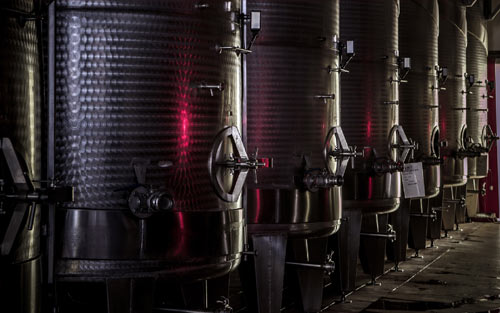
THE WINERY
We combine classical wine styling with contemporary thinking. We work hard in the vineyards to grow and harvest expressive, optimally ripened fruit that brims with the purity of varietal flavour so we can keep intervention in the cellar to the minimum. We also rely on precision farming, the application of artificial intelligence, machine learning and data to yield rich and detailed insights. It enhances our low-intervention approach while helping us to protect our natural assets, increase biodiversity and save water and energy.
Our solar-powered cellar is filled with a range of stainless-steel and wooden vessels, from small barriques to large foudres, new to second and older-fill barrels, so we have the flexibility to give each wine the treatment it deserves.
Fresh, finessed, and mouth-watering, our wines, all vegan-friendly, are meant for drinking when you buy them. Most are also structured to last for up to 15 years, when maturity and secondary flavours can add an additional dimension to your experience.
THE TEAM
HENRY KOTZÉ
HEAD WINEMAKER
Henry, who took over the running of our cellar mid-2020, is a highly awarded winemaker who grew up in Stellenbosch, studied winemaking at Stellenbosch University and has worked in the region all his life.
Widely recognised as a gifted winemaker and a consummate blender.
He is closely conversant with the very varied range of sites in Stellenbosch, their defining profiles and their individual nuances. He understands in rich detail the potential of the land here and knows intimately how best to coax varietal expression from specific sites. That is valuable not only at Mulderbosch itself but also in working with Stellenbosch suppliers to us. Some of these growers are well-known to him and he values their ability to express his stylistic vision.
MORNE MCGEAR
WINEMAKER
Morné has been part of the winemaking team since spring 2020, joining us after gaining extensive international and local experience. He trained in winemaking at Elsenburg Agricultural Training Institute and the Cape Peninsula University of Technology. He was also part of the US exchange initiative, Communicating for Agriculture Education Program (CAEP), where he earned accreditations in international winemaking.
FERDI COETSEE
FARM & VINEYARD MANAGER
Ferdi joined us in the spring of 2021.
His approach to viticulture is very detailed and hands-on.
Precision brings harmony, he believes.
He studied with winemaker Morné at Cape Peninsula University of Technology and previously worked with head winemaker Henry.
VINEYARDS
We make our wines from fruit grown here at Mulderbosch, where soils vary from Malmesbury shale and Table Mountain sandstone to sandy duplex and decomposed granite. Our diverse topography includes hills, slopes and valleys. Apart from our bush-vine Chenin Blanc left to grow as is, we apply vertical shoot positioning trellising to maximise fruit exposure to the morning sun. But vine rows face south/south-east, to derive the benefit from shade later in the day, and what becomes a relatively cool ambient temperature. Afternoon sea breezes from False Bay, less than 14 km away, also bring down temperatures to make for slow ripening, good acids and richer, more expressive flavours in our grapes.
Additionally, we source fruit from a small but carefully selected group of highly talented wine growers who follow the same approach to viticulture that we do. Like us, they believe in returning their vineyards to balance naturally and letting nature do most of the work in yielding healthy fruit with flavours that reflect their origin.
Our relationships with supplier growers go back many years. Not only do they share our wine-growing principles, but they are as invested in producing top-quality grapes as we are. So committed are they, that whenever they can, they prefer to deliver the fruit to us in person, rather than delegating the job to someone down the line!
They, like us, are IPW and WIETA-accredited as they subscribe to the same eco- and socially-sustainable codes of practice that we do.
Virtually all our wines are certified as Wine of Origin Stellenbosch.
Believing as we do in the importance of vineyard site, we produce two single vineyard wines – a Stellenbosch Chenin Blanc sourced from a celebrated site close to the cooling influence of False Bay, and a Cabernet Franc from a very special site here on Mulderbosch.
GALLERY
ACCREDITATIONS
In line with our commitment to principles of ESG (ethical, social and governance), we have achieved the following certifications:
Integrated Production of Wine (IPW)
Providing supply chain traceability from soil to bottle. Open to public scrutiny, it underscores our focus on production integrity and commitment to eco-sustainability. All our suppliers are contractually obliged to be IPW-accredited too. (For more go to www.ipw.co.za)
Wine and Agricultural Ethical Trade Association (WIETA)
Our accreditation demonstrates not only our own compliance with ethical and fair labour conditions. Our contracts with all suppliers also stipulate WIETA compliance. WIETA subscribes to universally accepted auditing standards. (For more go to www.wieta.org)
amfori BSCI
Operating across over 40 countries, amfori BSCI advocates for trade with purpose and is closely aligned with the United Nations Sustainable Development Goals (SDGs). Its Code of Conduct, with which we comply, is created to enable organisations to enhance human prosperity, use natural resources responsibly and drive open trade globally. The code is based on and refers to:
- United Nations (UN) Universal Declaration of Human Rights
- International Labour Organization (ILO) Conventions and Recommendations
- UN Guiding Principles on Business and Human Rights (UNGP)
- OECD Guidelines for Multinational Enterprises
- UN Children’s Rights and Business Principles
- Gender Dimensions of the UN Guiding Principles on Business and Human Rights.
For more, go to www.amafori.org

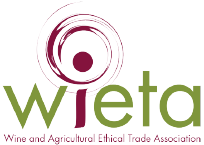

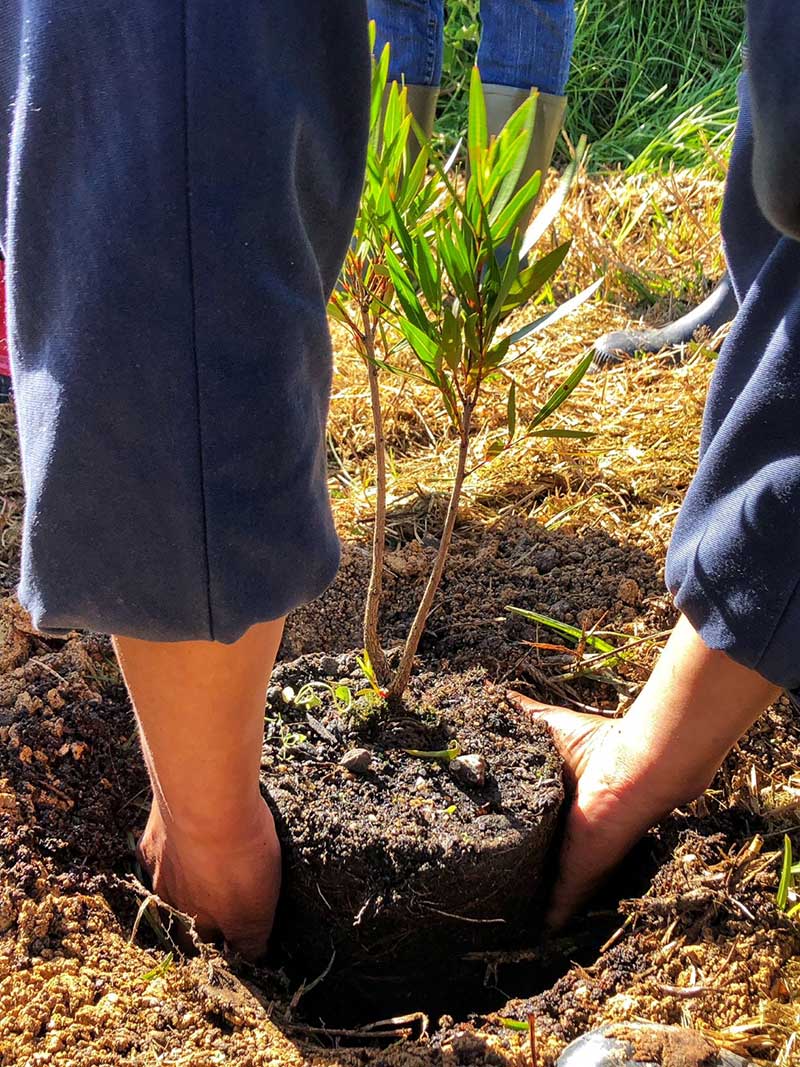

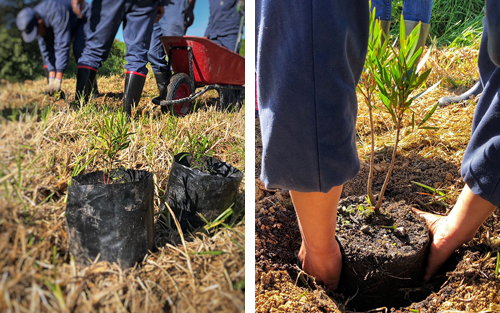
COMMUNITY
In line with our commitment to principles of ESG (ethical, social and governance), we have achieved the following certifications:
Integrated Production of Wine (IPW)
Providing supply chain traceability from soil to bottle. Open to public scrutiny, it underscores our focus on production integrity and commitment to eco-sustainability. All our suppliers are contractually obliged to be IPW-accredited too. (For more go to www.ipw.co.za)
Wine and Agricultural Ethical Trade Association (WIETA)
Our accreditation demonstrates not only our own compliance with ethical and fair labour conditions. Our contracts with all suppliers also stipulate WIETA compliance. WIETA subscribes to universally accepted auditing standards. (For more go to www.wieta.org)
amfori BSCI
Operating across over 40 countries, amfori BSCI advocates for trade with purpose and is closely aligned with the United Nations Sustainable Development Goals (SDGs). Its Code of Conduct, with which we comply, is created to enable organisations to enhance human prosperity, use natural resources responsibly and drive open trade globally. The code is based on and refers to:
- United Nations (UN) Universal Declaration of Human Rights
- International Labour Organization (ILO) Conventions and Recommendations
- UN Guiding Principles on Business and Human Rights (UNGP)
- OECD Guidelines for Multinational Enterprises
- UN Children’s Rights and Business Principles
- Gender Dimensions of the UN Guiding Principles on Business and Human Rights.
For more, go to www.amafori.org

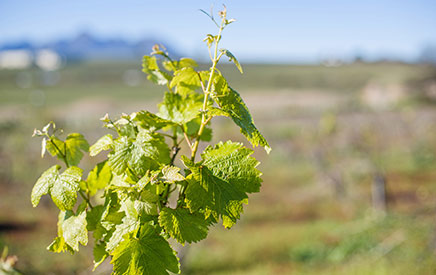
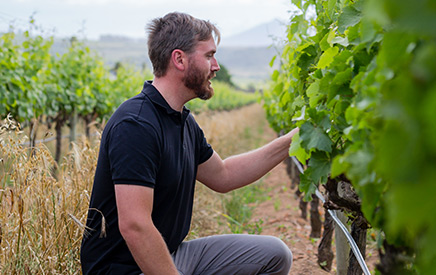
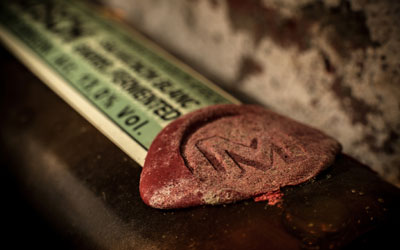

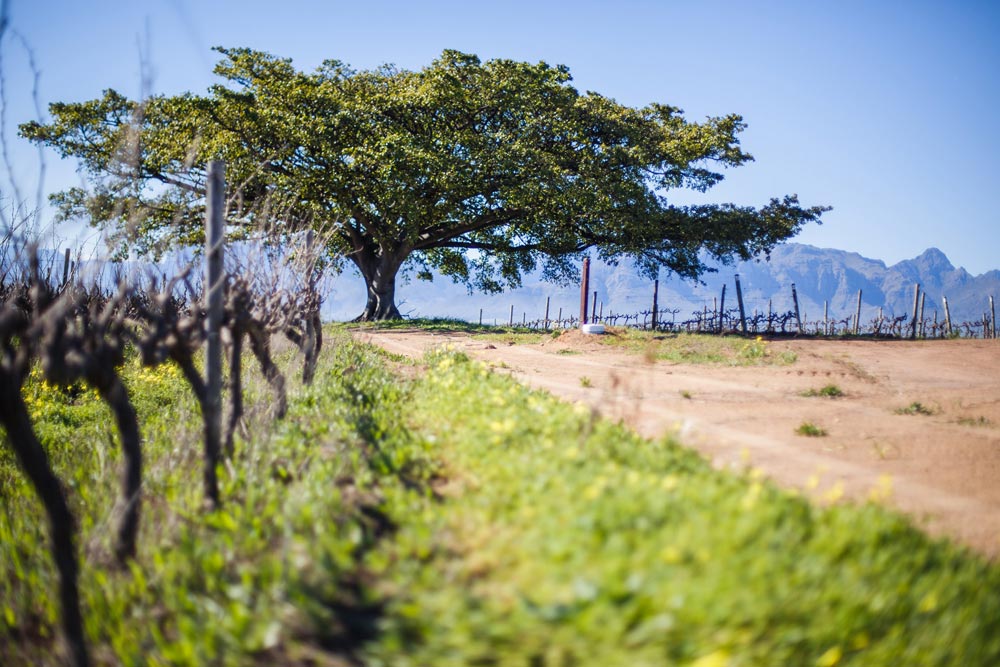
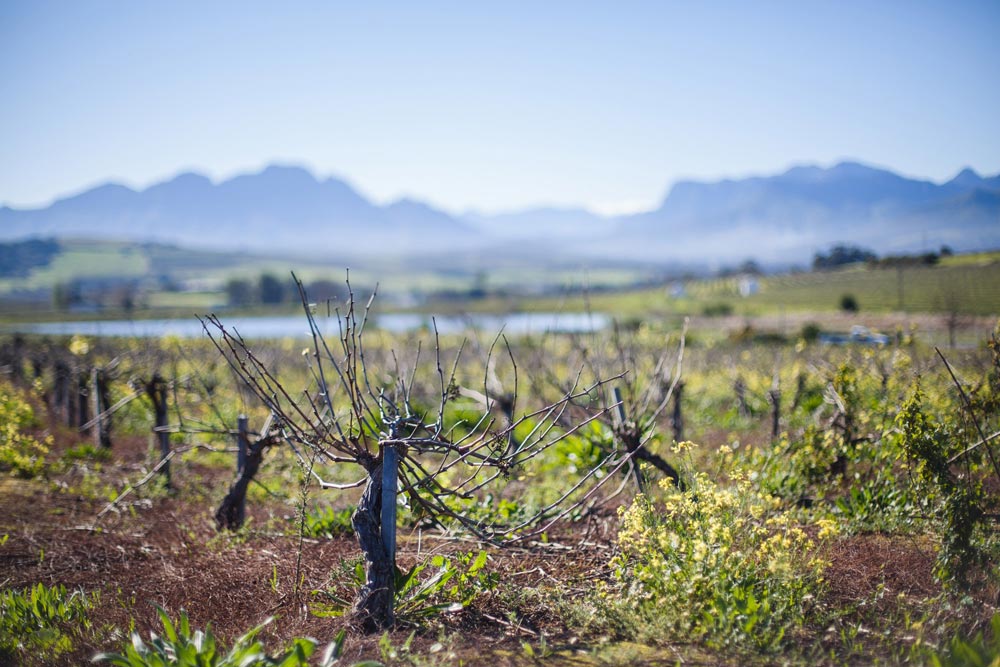
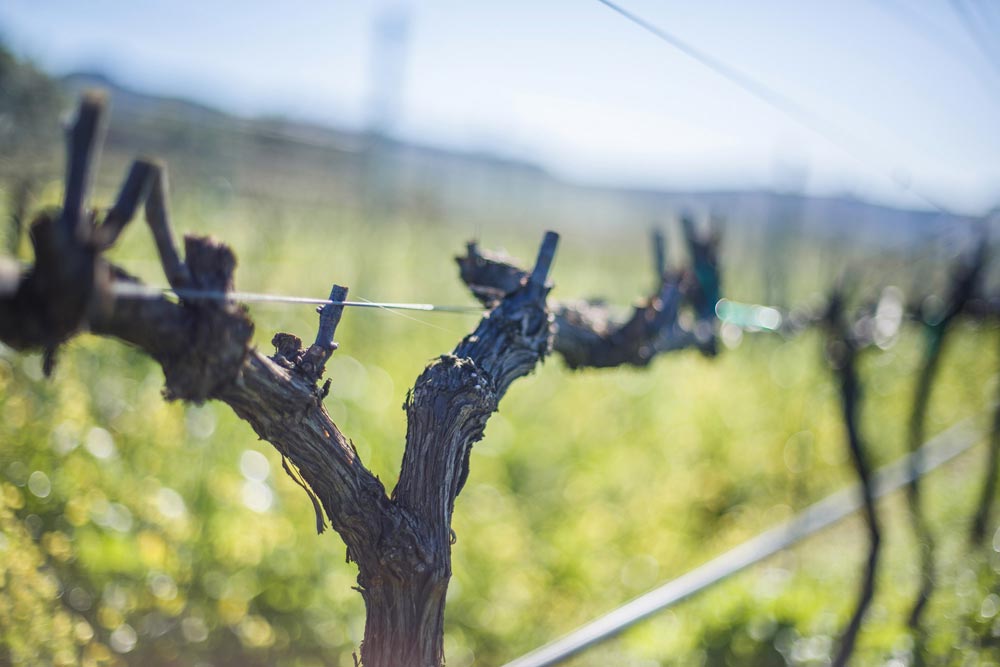
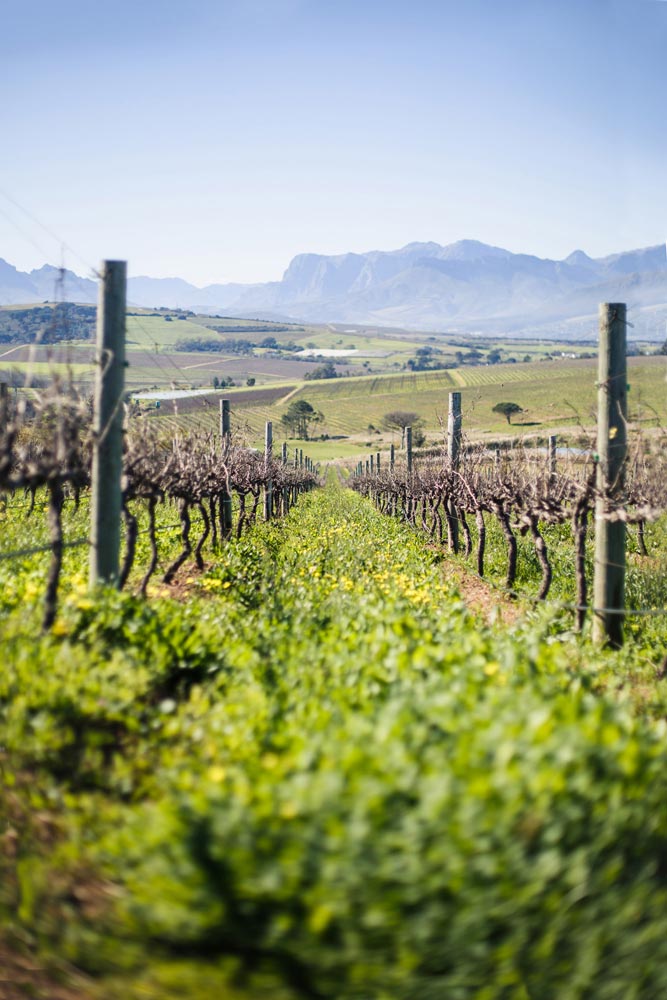
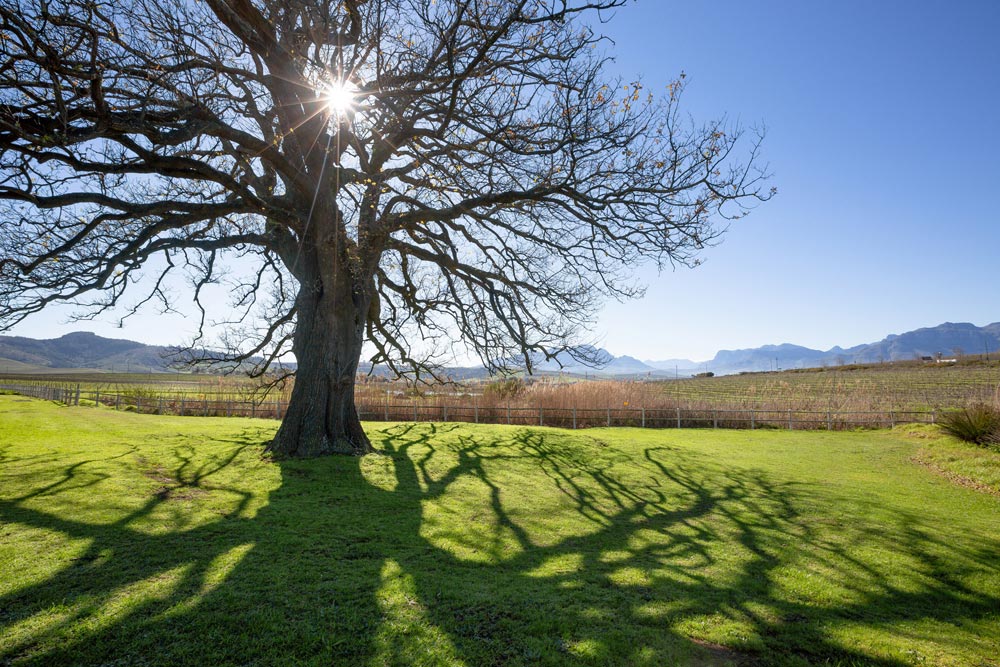
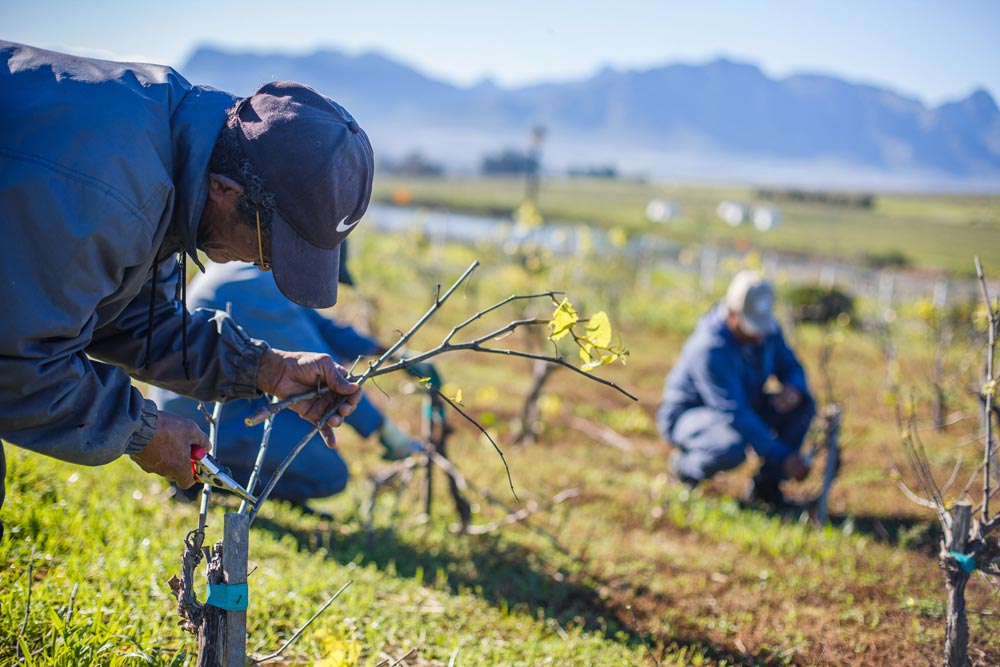
OUR SOCIAL RESPONSIBILITY
In the way we grow and make wines we do everything possible to restore and maintain a natural balance. Our close network of carefully selected supplier-growers is committed to the same principles.
At Mulderbosch, cover crops like grain, lupins, and flowering, insectary plants are planted on a rotational basis to increase biodiversity, add organic matter to the soil, boost microbial life and carbon sequestration. The oats, peas, beans, vetch and other flora help to fix nitrogen, aerate, moisturise and enrich the soil while inhibiting weed growth. No herbicides are used on the farm. Pests are controlled in part by the flowering cover crops. They attract bees and other insects that function as natural pesticides. We also practice biofumigation, where cover crops are fine-ground and incorporated into the soil to release organic compounds that help control pests.
Various owls and snakes also form an important part of our integrated pest management approach, helping to curb local rodents.
As further protection of our natural assets, we follow the Simonit & Sirch low-intervention pruning methods to promote vine health and longevity.
We have an on-site bioreactor to treat all winery wastewater that is discharged into our natural wetland and that is further filtered by indigenous reedbeds. Our wetland is home to fish eagles, falcons, buzzards, blue cranes, as well as various owls.
The work we have done to rehabilitate the indigenous habitat on the farm has created a safe and sympathetic environment for small antelope such as springbok, duikers and steenbokke, as well as mongooses and otters.
As further demonstration of our commitment to eco- and socially-responsible farming and production, we are both IPW and WIETA accredited, as are our supplier growers.
We also make wide use of the lowest weight glass bottles available to us in South Africa and continue to move towards light-weighting our prestige edition offerings.